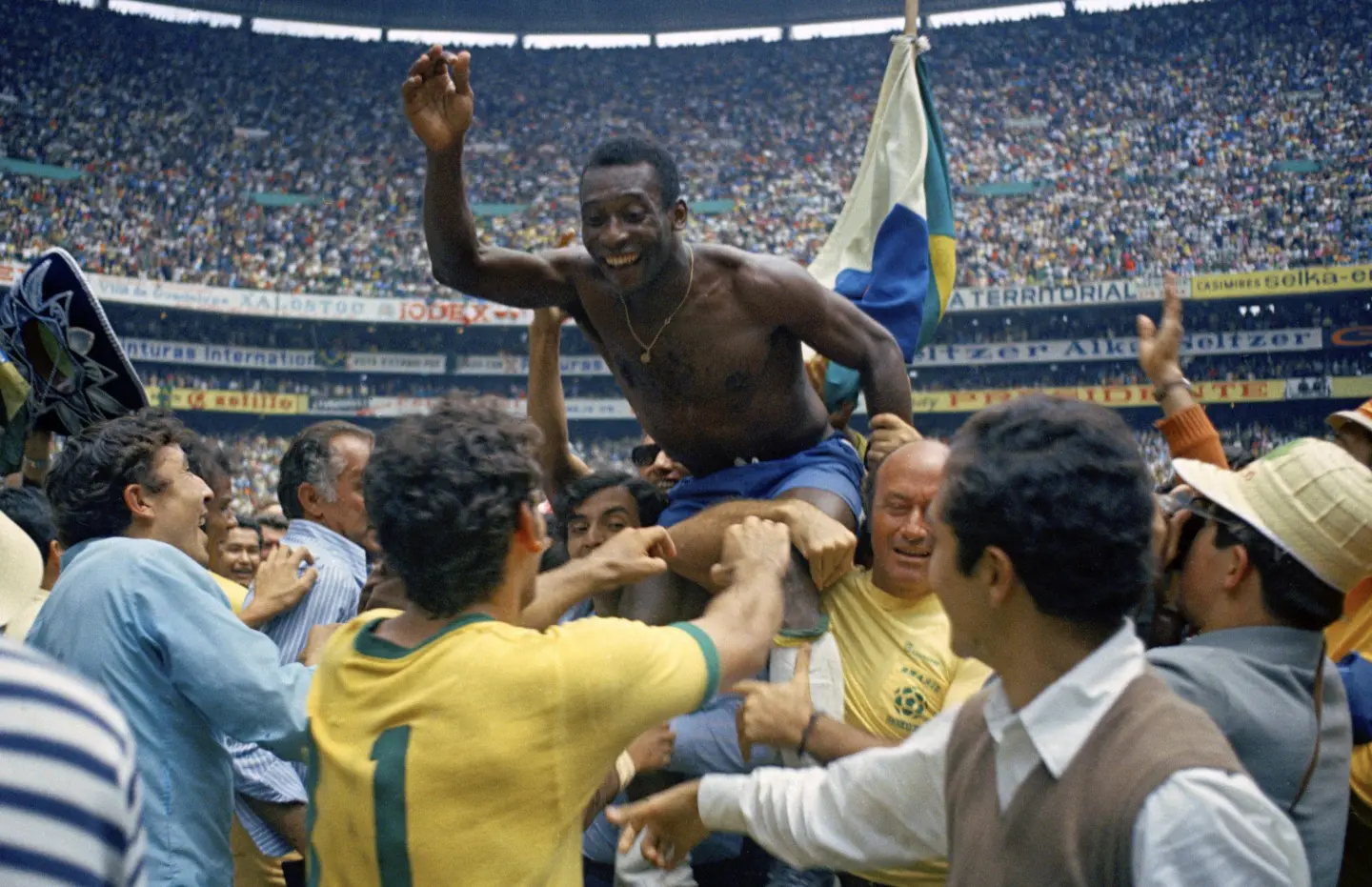Pelé, widely regarded as the greatest soccer player of all time, left an indelible mark on the sport. His name is synonymous with excellence, passion, and the unparalleled artistry of football. From his extraordinary skill on the ball to his ability to perform under pressure, Pelé’s influence is felt not only on the field but also in the hearts of fans worldwide.
His incredible journey from a young boy in Brazil to a global icon is a testament to his brilliance, and his legacy continues to inspire generations of players and fans alike.
Born Edson Arantes do Nascimento on October 23, 1940, in Três Corações, Brazil, Pelé’s talent was evident from a very young age. Growing up in a poor family, he was introduced to soccer by his father, a former player, who encouraged him to pursue his dreams.
Pelé’s early years were spent honing his skills on the streets of Bauru, a city in the São Paulo state. It wasn’t long before he was noticed by scouts, and at just 15 years old, he was called up to play for Santos Futebol Clube, a top Brazilian club. This marked the beginning of a journey that would change the course of football history.
Pelé’s arrival at Santos was nothing short of a revelation
His speed, vision, and technical ability on the ball were unlike anything anyone had seen before. By the time he turned 16, he had become a fixture in the first team, and his impact was immediate.
In 1958, Pelé made his debut for the Brazilian national team at the tender age of 17 during the FIFA World Cup in Sweden. His performances in the tournament were nothing short of extraordinary. Scoring six goals, including a hat-trick in the semifinal against France, Pelé played a crucial role in Brazil’s first-ever World Cup triumph.
Pelé’s victory in the 1958 World Cup was just the beginning of a glittering international career. He would go on to win two more World Cups, in 1962 and 1970, cementing his status as a global football icon. His contributions to Brazil’s success on the world stage were invaluable. In 1962, despite suffering an injury in the group stages, Pelé’s earlier contributions helped Brazil lift their second World Cup.
However, it was in 1970, in Mexico, that Pelé truly cemented his legacy. The 1970 World Cup is often regarded as the greatest display of team football ever seen, and Pelé was the star of the show. His goals, vision, and leadership on the field were crucial to Brazil’s success.

In that tournament, Pelé became the first player in history to win three World Cups, a feat that remains unmatched to this day.
Pelé’s playing style was a fusion of elegance and power. He had an innate understanding of the game and was able to anticipate the movements of his teammates and opponents alike. His dribbling skills were legendary, and his ability to glide past defenders with ease made him a nightmare for opposition players.
Pelé’s vision and passing were equally exceptional, often delivering pinpoint passes that set up his teammates for goals. His finishing ability was clinical, and he had an uncanny knack for finding the back of the net from all positions on the field. In addition to his technical skills, Pelé possessed an incredible physical presence that allowed him to dominate on the field.
Pele scored more than 1000 goals
Throughout his career, Pelé scored over 1,000 goals for club and country, a feat that only a handful of players have managed to replicate. His goalscoring record is a testament to his consistency and longevity in the game. Pelé’s time at Santos was marked by numerous domestic titles, including the Copa Libertadores, South America’s premier club competition.
He played for Santos until 1974, when he moved to the United States to join the New York Cosmos, where he played for the remainder of his career. His move to the North American Soccer League helped raise the profile of soccer in the United States, and his time with the Cosmos was instrumental in popularizing the sport in the country.

Pelé’s influence on the sport transcended his playing days. After his retirement in 1977, Pelé became a global ambassador for soccer, using his platform to promote the game and inspire future generations of players. His work off the field was as impactful as his accomplishments on it. In addition to his charitable efforts, Pelé served as a UN ambassador for peace, further cementing his status as one of the most influential athletes in history.
Pelé’s legacy lives on
Even after his passing in December 2022, Pelé’s legacy endures. His contributions to the game are immeasurable, and his impact on the sport will be felt for generations to come. Pelé is remembered not just for his goals and accolades, but for his love of the game and the way he brought joy to millions of people around the globe.
His influence on football is unparalleled, and he will forever be remembered as the Eternal King of the Beautiful Game.
Pelé’s journey from a young boy with a dream to a global legend is a story of triumph, determination, and unwavering passion for the sport. His impact on football and the world of sports at large is undeniable, and his legacy will continue to inspire athletes for years to come. Pelé changed the beautiful game forever, and his name will forever be synonymous with greatness.







